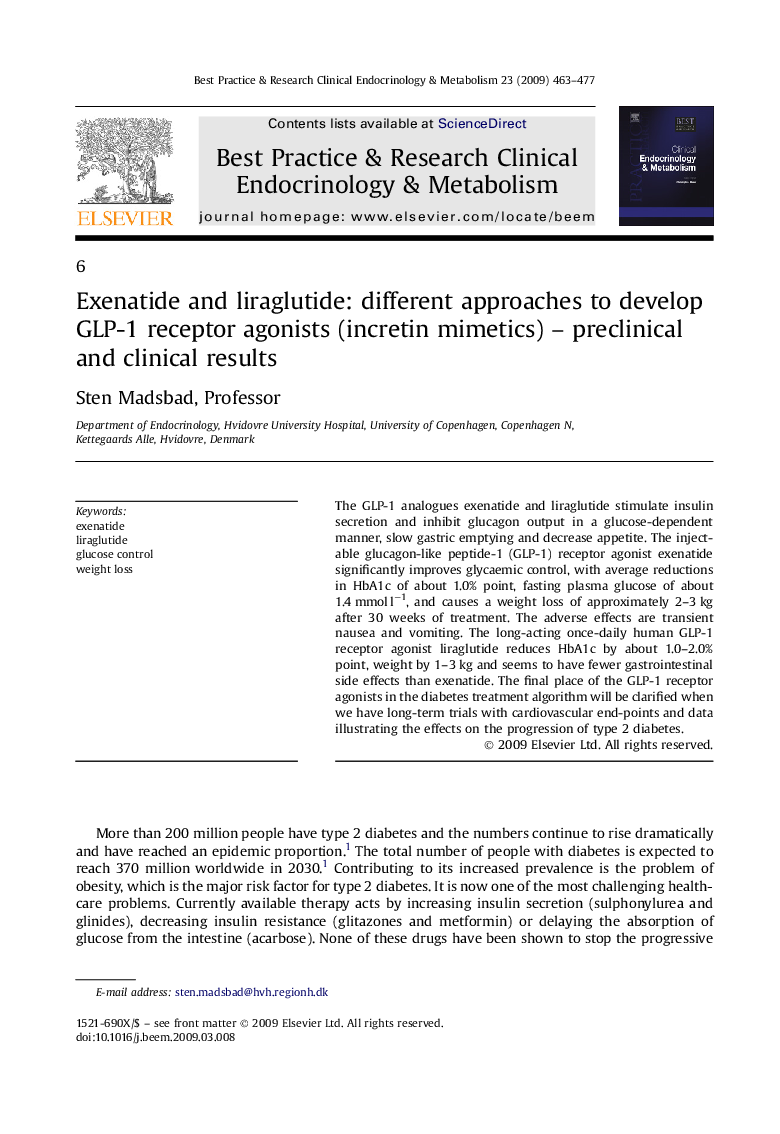| Article ID | Journal | Published Year | Pages | File Type |
|---|---|---|---|---|
| 2792180 | Best Practice & Research Clinical Endocrinology & Metabolism | 2009 | 15 Pages |
The GLP-1 analogues exenatide and liraglutide stimulate insulin secretion and inhibit glucagon output in a glucose-dependent manner, slow gastric emptying and decrease appetite. The injectable glucagon-like peptide-1 (GLP-1) receptor agonist exenatide significantly improves glycaemic control, with average reductions in HbA1c of about 1.0% point, fasting plasma glucose of about 1.4 mmol l−1, and causes a weight loss of approximately 2–3 kg after 30 weeks of treatment. The adverse effects are transient nausea and vomiting. The long-acting once-daily human GLP-1 receptor agonist liraglutide reduces HbA1c by about 1.0–2.0% point, weight by 1–3 kg and seems to have fewer gastrointestinal side effects than exenatide. The final place of the GLP-1 receptor agonists in the diabetes treatment algorithm will be clarified when we have long-term trials with cardiovascular end-points and data illustrating the effects on the progression of type 2 diabetes.
